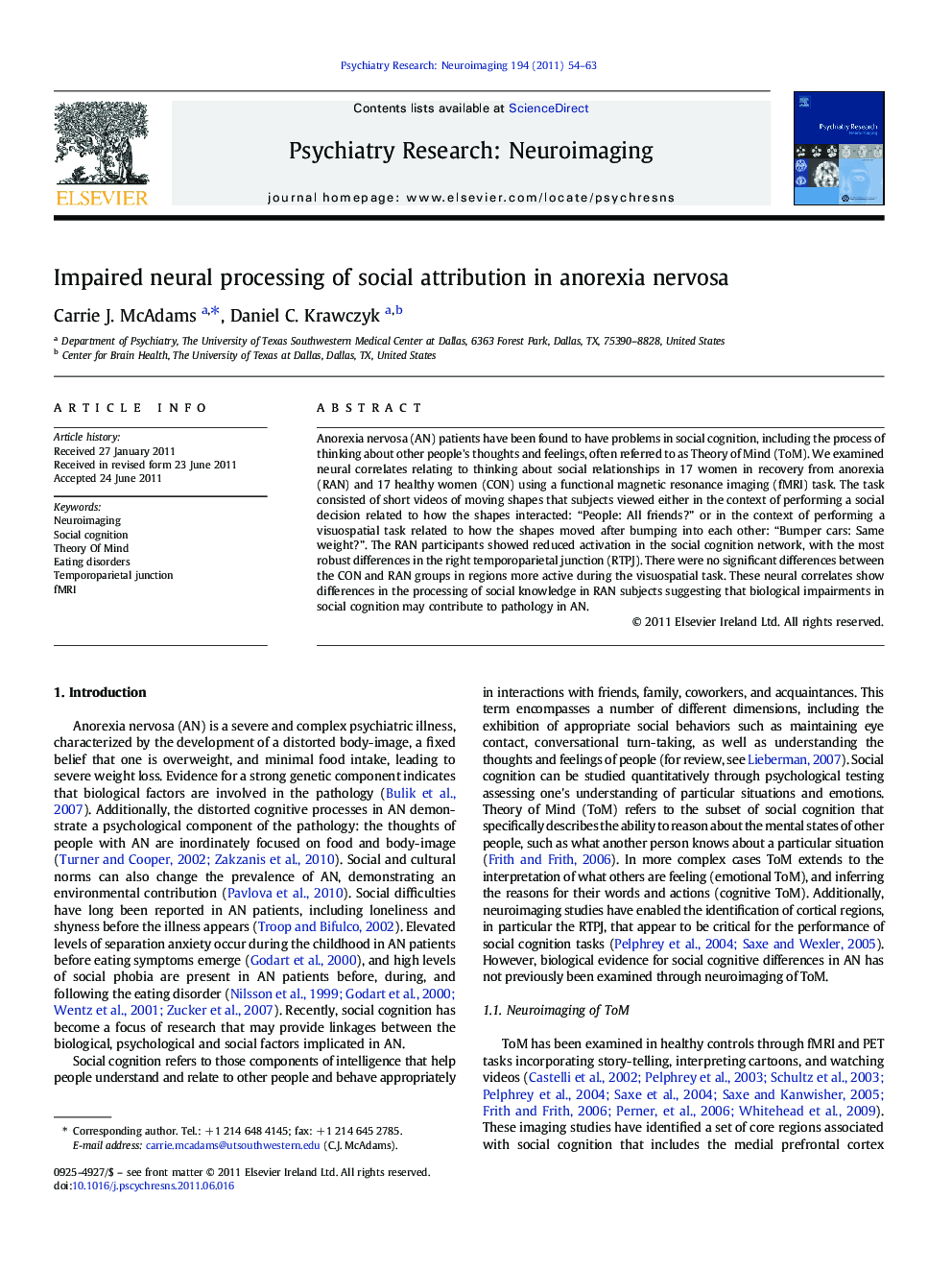| Article ID | Journal | Published Year | Pages | File Type |
|---|---|---|---|---|
| 335434 | Psychiatry Research: Neuroimaging | 2011 | 10 Pages |
Anorexia nervosa (AN) patients have been found to have problems in social cognition, including the process of thinking about other people's thoughts and feelings, often referred to as Theory of Mind (ToM). We examined neural correlates relating to thinking about social relationships in 17 women in recovery from anorexia (RAN) and 17 healthy women (CON) using a functional magnetic resonance imaging (fMRI) task. The task consisted of short videos of moving shapes that subjects viewed either in the context of performing a social decision related to how the shapes interacted: “People: All friends?” or in the context of performing a visuospatial task related to how the shapes moved after bumping into each other: “Bumper cars: Same weight?”. The RAN participants showed reduced activation in the social cognition network, with the most robust differences in the right temporoparietal junction (RTPJ). There were no significant differences between the CON and RAN groups in regions more active during the visuospatial task. These neural correlates show differences in the processing of social knowledge in RAN subjects suggesting that biological impairments in social cognition may contribute to pathology in AN.
